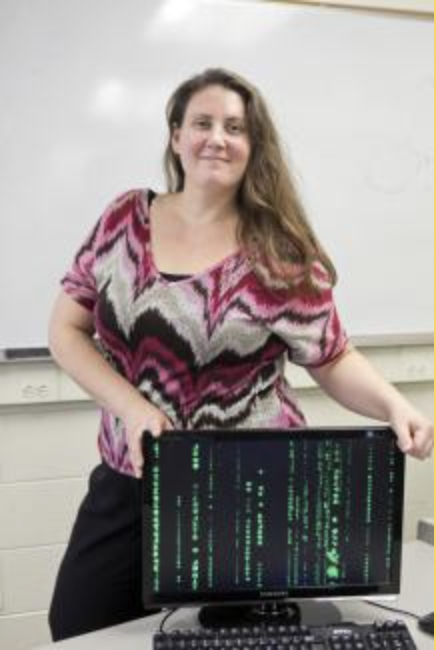Clarkson University's Matthews is a Lead Author of New Statement on Responsible Algorithmic Systems

Clarkson University Professor of Computer Science Jeanna Matthews is one of two lead authors for a new Statement on Principles for Responsible Algorithmic Systems released this fall by the Association for Computing Machinery’s Global Technology Policy Council.
The statement was authored jointly by the ACM's U.S. Technology Policy Committee and Europe Technology Policy Committee.
Recognizing that algorithmic systems are increasingly used by governments and companies to make or recommend decisions that have far-reaching effects on individuals, organizations, and society, the ACM statement lays out nine instrumental principles intended to foster fair, accurate, and beneficial algorithmic decision-making.
"We are building on our 2017 Statement on Algorithmic Transparency and Accountability with principles that urge designers and developers to produce sufficient evidence of the legitimacy and reliability of automated systems, so that users do not need to place blind trust in them," says Matthews. "Processes to collect and share this critical information transparently throughout a system’s lifecycle is key to responsible deployment of algorithmic systems in collaboration with all the stakeholders impacted by a system."
Matthews served on a highly attended Dec. 1 panel of ACM experts, which explored the new statement as well as the legal, ethical, and scientific implications of life in the new machine age.
The new statement includes a definition for each principle as well as a brief explanation of how the principle contributes to the larger goal of building responsible algorithmic systems.
The nine instrumental principles are Legitimacy and Competency; Minimizing Harm; Security and Privacy; Transparency; Interpretability and Explainability; Maintainability; Contestability and Auditability; Accountability and Responsibility; and Limiting Environmental Impacts. The new statement complements the ACM Code of Ethics and is intended as a guide for algorithm developers and designers to remain vigilant concerning the potential for bias and unfairness at each stage of the software development process.
Matthews is also part of the U.S. Department of Commerce National Institute of Standards and Technology AI Risk Management Framework team, which is developing a framework to better manage risks to individuals, organizations, and society associated with artificial intelligence (AI).
She also served on a Dec. 5 panel on the Future of Commercial Surveillance and the Internet Economy conducted by the IEEE Educational Activities Board.
Matthews’ research focuses on securing societal decision-making processes and supporting the rights of individuals in a world of automation. A Clarkson professor since 2000, she is the author of numerous academic publications related to AI and AI policy. A senior ACM member, Matthews is also a member of the ACM Council and a founding co-chair of the ACM Technology Policy Subcommittee on Artificial Intelligence and Algorithm Accountability.
ACM’s US Technology Policy Committee serves as the focal point for ACM's interaction with all branches of the U.S. government, the computing community, and the public on policy matters related to information technology. ACM is the world's largest educational and scientific computing society, uniting educators, researchers, and professionals to inspire dialogue, share resources and address the field's challenges.
